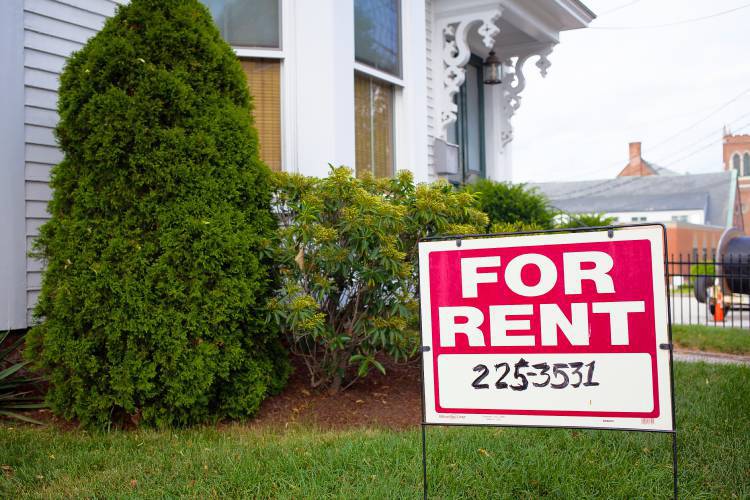Virginia Rent Increase Laws 2024: Key Facts for Tenants. Virginia has legislation pertaining to rent hikes that safeguard the rights of both owners and tenants. These laws should be understood by both landlords and tenants.
Both parties may be impacted by revisions and modifications to the law in 2024, so understanding how the system operates is crucial. Here are some things Virginia tenants should be aware of regarding rent increases in 2024.
1. No Statewide Rent Control in Virginia
Unlike some other states, Virginia does not have a statewide rent regulation.
This implies that owners can raise rent in general, but they must adhere to some crucial guidelines and procedures to ensure that they do so in accordance with state law. Renters do not, however, have total freedom just because there is no rent regulation.
2. Notice Requirements for Rent Increases
According to Virginia law, landlords must provide renters adequate notice before increasing rent. According to the Virginia Residential Landlord and Tenant Act (VRLTA), when rent increases for month-to-month contracts, landlords are required to provide written notice of at least 30 days.
Unless the lease agreement specifies otherwise, rent increases for tenants with fixed-term leases (such as a year) cannot occur until the end of the contract.
If a landlord attempts to raise rent before the conclusion of a fixed-term lease or fails to give tenants adequate notice, tenants may contest the increase.
3. What Constitutes “Reasonable” Rent Increases?
Although there are no explicit restrictions on rent increases in Virginia, an abrupt and irrational increase may nonetheless be challenged. Virginia’s courts have the authority to determine whether a rent increase is reasonable, particularly if it appears to have been unreasonable or intended as retaliation.
According to the VRLTA, rent increases intended to penalize tenants for reporting housing issues or exercising their legal rights are prohibited.
Renters should document the incident and perhaps consult a lawyer to determine their options if they believe that a proposed rent increase is unjust or intended as a form of punishment.
4. Local Ordinances and Regulations
It is crucial to keep in mind that certain local governments may have their own housing regulations, which may include restrictions or limitations on rent increases, even if Virginia does not have a statewide rent control legislation.
To discover out what regulations might be in effect in their area, tenants should get in touch with the housing authority in their city or county.
Additionally, there are more stringent guidelines regarding the amount of rent increases that can occur under Section 8 or other subsidized housing programs. The owner must abide by the guidelines for increasing rent if a renter is enrolled in such a program.
5. Fair Housing and Anti-Discrimination Laws
In Virginia, renters are shielded from unjust rent increases by the Fair Housing Act. Race, color, gender, sex, nationality, disability, or family status are not grounds for rent increases.
If a renter believes that a rent increase is unjust due to their race or ethnicity, they can file a complaint with the Virginia Fair Housing Office.
Among other penalties, landlords who violate these anti-discrimination regulations may be punished or ordered to return rent increases.
6. Security Deposit Impacts
In the event that rent increases, the security charge amount can also rise. According to Virginia law, security fees cannot exceed two months’ worth of rent.
The owner could have to adjust the security deposit amount if the rent increases and it exceeds this sum.
Renters should be aware of this law since it can prevent landlords from requesting excessive deposits after rent increases.
7. Lease Renewal and Rent Negotiation
Renters with leases that are due for renewal can frequently discuss rent increases. Tenants should be aware of their rights and the current state of the housing market before entering into these discussions.
The renter should discuss the rent increase with the landlord if they feel it is excessive. This is particularly crucial if the renter has a solid renting history. To retain good tenants, landlords may occasionally be willing to reduce rent or offer other incentives.
8. What to Do If You Can’t Afford the Rent Increase
If tenants are unable to pay a rent increase, they have a few options. One option is to discuss reducing the rent increase with the owner. If the landlord values the tenant’s stay, they could be willing to work with them to arrange a different payment plan.
You might also search for assistance programs, such as those provided by nonprofit organizations or the local government, that might be able to assist with the rent. Tenants may also search for a less expensive area to reside if the rent increase is too high for them.
9. Evictions Due to Rent Increases
Tenants should be informed of their eviction rights if they are unable to pay a rent increase. Landlords must still adhere to Virginia’s eviction processes even though they have the right to evict tenants for failing to pay rent after an increase.
This entails giving formal notice of nonpayment and pursuing eviction through the appropriate legal procedures.
Tenants should keep accurate records of their payments and record any correspondence with their landlords on rent hikes because eviction cannot be used as reprisal for tenants exercising their rights.
Conclusion
Renters should be aware of Virginia’s rent increase regulations in 2024, particularly given the steadily rising cost of housing. Renters are nonetheless shielded from discrimination, unjust hikes, and a lack of notice even though the state does not have rent control.
By remaining informed and knowing when to negotiate or seek legal assistance, tenants can ensure that the law treats them fairly.


 by
by 




